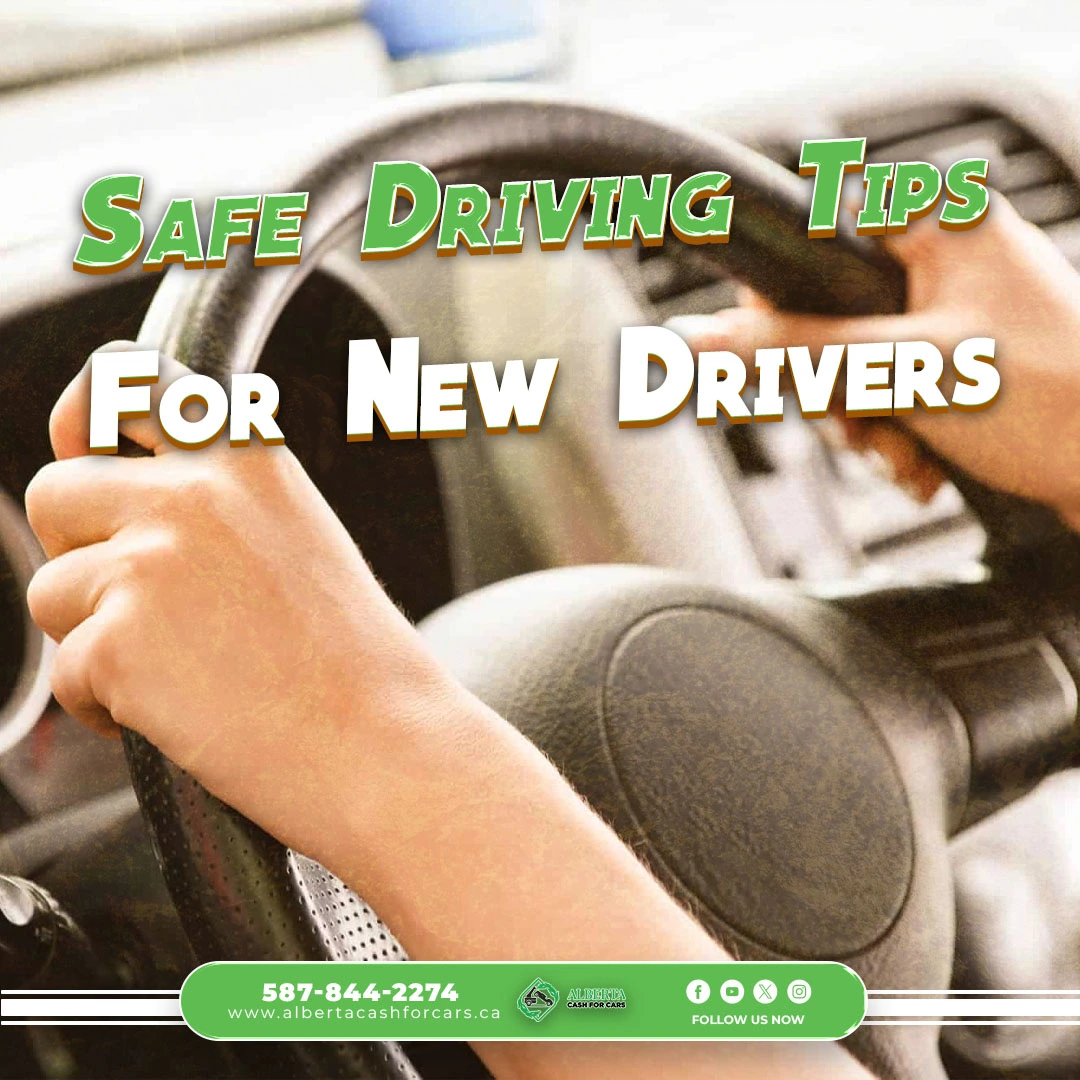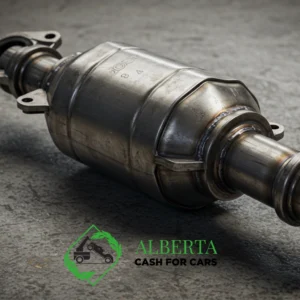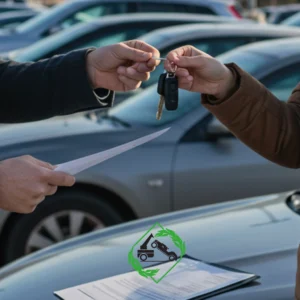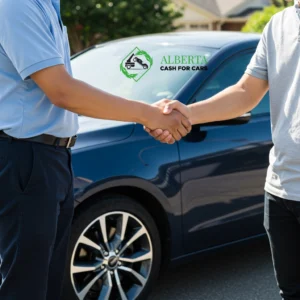Driving is a big responsibility, and we aim to make new drivers as prepared as possible for this big responsibility. Cash for cars Calgary has put together a list of Safe driving tips for new drivers to ensure everyone’s safety on the road. In addition to new drivers, everyone can benefit from this. If you are among the people who have been driving for years, you can use these basic principles and remind yourself of them. By following these tips, you can be a smart and safe driver on the road.
No Hassle, Just Cash — Book Your Free Pickup or Quote Today!
What are the Safe driving tips for new drivers?
Here, we bring you the best Safe driving tips for new drivers and more experienced drivers alike. You can have a safe driving on the road by reading and applying these tips:
Know your car
Now you have a license, and you definitely are happy to get behind the wheel. Make sure you know how to operate the machine before you try to start it. Go through the manual thoroughly to familiarize yourself with all controls, buttons, and indicator lights. Learn the basics of car maintenance; for example, you need to know how to open the hood, change a tire, find a spare, and check tire pressure and oil level. Make sure that any car you are going to drive is equipped with a car emergency kit.
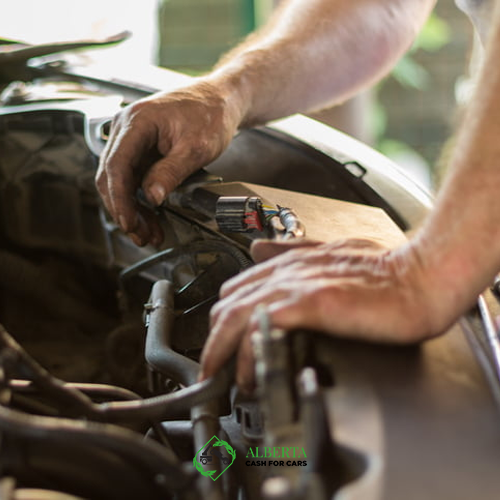
Adjust Driver Settings
It doesn’t matter if the car you’re going to drive is your own or someone else’s; you should be able to keep the vehicle you’re going to drive safely duo to Safe driving tips for new drivers and adjust it to the best position for you. This means that you should adjust your seat so that your feet can easily reach the pedals and you have a good view of the windshield. Adjust all mirrors to eliminate blind spots as much as possible and increase visibility around your vehicle.
Eliminate your distractions
According to reports, most accidents are caused by distracted drivers. Distractions, including sleepiness, texting or phone calls, noise or overly active passengers, eating, multitasking, and sleepiness, all lead to unsafe driving conditions. You should reduce or target these types of distractions while driving so that you can focus on the safety of yourself and your passengers while driving.
Keep your distance
Rear-end accidents comprise a large part of accidents. Knowing what’s around you in addition to what’s in front of you will make you a more active driver. Try to leave plenty of space between your car and the oncoming vehicle so that you can brake or change lanes if needed. Be sure to check your lenses every 15 to 30 seconds to recognize the dangers and control them properly quickly. Always double-check your blind spots before changing lanes.
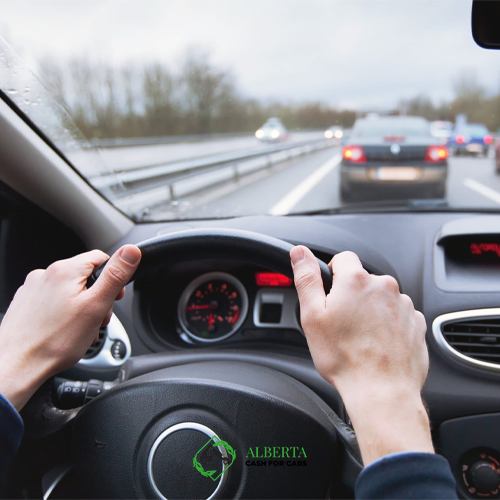
Watch your speed
Speed limits exist for various reasons. In addition to breaking the law, speeding increases the risk of losing control of the vehicle. It reduces your ability to mitigate the severity of an accident if you do experience an accident. For your own safety and the safety of others, keep an eye on your speedometer whenever you are in the car.
Buckle up
Teenagers use seat belts less than any other people. In addition to the driver must wear his/her seat belt, passengers must also wear their seat belts. If younger children are going to be riding in the car, make sure they use appropriate restraints for their age, height, and weight, including child seats.
Practice driving more
It is better to practice driving as much as you can. This can be any time you want; for example, you can go to the store, go to sports practice, or go to school. More practice in this field will make you more proficient in your work.
Remain Calm
Stress can make you feel bad in any scenario, especially when you are behind the wheel. However, focusing on the road and taking a few deep breaths can help you stay calm in any driving situation. If you need to get off the road to calm down, you can find a safe spot and stay there for a few minutes.
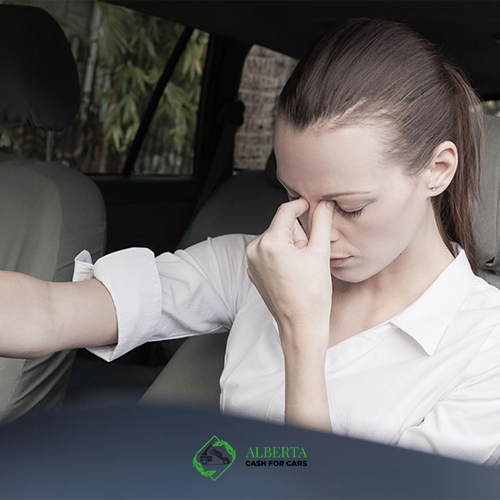
Understand Passenger Laws
Most states have provisional licensing laws, meaning drivers’ points increase as their experience increases. If you are one of those who have a temporary license that is valid until a certain time, you cannot carry other passengers unless they are over 20 years old. Carrying a passenger in the car increases your chances of being distracted.
Do not drink before or while driving
You must have come across billboards about this or heard stories about it on social media. Driving under the influence of alcohol or drugs can be very dangerous for you and everyone else on the road. So, never do this.
Do not use the phone while driving
We use our phones for almost everything we do, including playing music, checking the weather, checking social media posts, answering calls, sending and replying to text messages, and many more. But it is better to know that all these things lead to your distraction while driving. If you want to listen to music while driving, it is better to play your music list before you start driving, then put the phone out of reach and on the back seat so that you are not tempted to use it.
Limit driving at night
Most of our social activities take place in the evenings or on weekends. However, most states have restrictions on driving at night for provisional and intermediate licenses. It should be noted that most accidents happen at night.

Obey all traffic laws
Besides the Safe driving tips for new drivers, there are rules that drivers must understand and follow. Adhering to the speed limit, leaving enough space between you and the car in front, obeying traffic signs, and wearing a seat belt are just a few of these rules. Learning and applying these rules will help you to drive safely and calmly on the road, and you will also help other drivers to be safe and calm on the road. Obeying traffic laws can help you avoid traffic tickets, which are expensive and can increase your car insurance rates.
Read Also: How to Drive on the Highway? | Highway Driving Tips
Keep the car in good condition
Car care can help you a lot in preventing breakdowns and other possible accidents. Car care includes regular oil changes and adjustments, checking tire pressure, regular tire rotation, checking brake fluid and coolant levels, and filling the gas tank before it gets too close to E.
Be careful of the weather
Rain, wind, and snow can make driving more difficult and dangerous for you. If the road is wet, make sure your headlights are on and then slow down. When the roads are slick, it takes longer for the brakes to work. As a final note, if the weather conditions are very bad and you do not have the skills to drive in winter, it is better to avoid driving.
Concentrate on your driving
Ignoring distractions and staying focused on the road is a way to drive safely, this is one of the best safe driving tips. Maintaining focus while driving requires following the following steps:
- Give 100% of your attention to driving and do nothing else.
- Do not use the phone or any other vehicle while driving.
- Drive slowly, speeding gives you less time to react and increases the severity of the accident.
Defensive driving
Defensive driving is when drivers use crash prevention techniques with a focus on safe driving. You may even qualify for a defensive driving discount. To practice defensive driving duo to the safe driving tips:
- Be aware of what other drivers around you are doing and expect the unexpected.
- Imagine that other drivers are going to do something crazy so you can always be prepared and avoid it.
- Leave a distance of 2 seconds between you and the car in front, if the weather conditions are bad, increase this time to 4 seconds.
Develop a safe driving plan
If you plan to travel, include time in your schedule for meals, rest, phone calls, and anything else. Adjust the gear, seats, mirrors, and air conditioning controls before the trip.
Read Also: City Driving Tips
What to do if there is a car accident?
If you are involved in a car accident, you should first check to see if anyone was hit and injured. Follow the steps below:
- Stay at the scene: Leaving the scene of an accident can lead to legal consequences, including fines or additional violations.
- Contact the local police: The local police will send an officer and medical personnel to the scene, and wait until the police arrive to complete an accident report.
- Stay in the car: If the accident happened on a busy highway, it is better to stay in the car and wait for the police or an ambulance.
- Stay calm: Do not argue with the other driver. Easily transfer contact and insurance information to one another. If possible, get the information of the people who witnessed the accident.
- Contact your insurance provider: Contact your auto insurance provider to report the claim. The agent will ask you for documents about the accident and can also give you important information about repairing the car.

